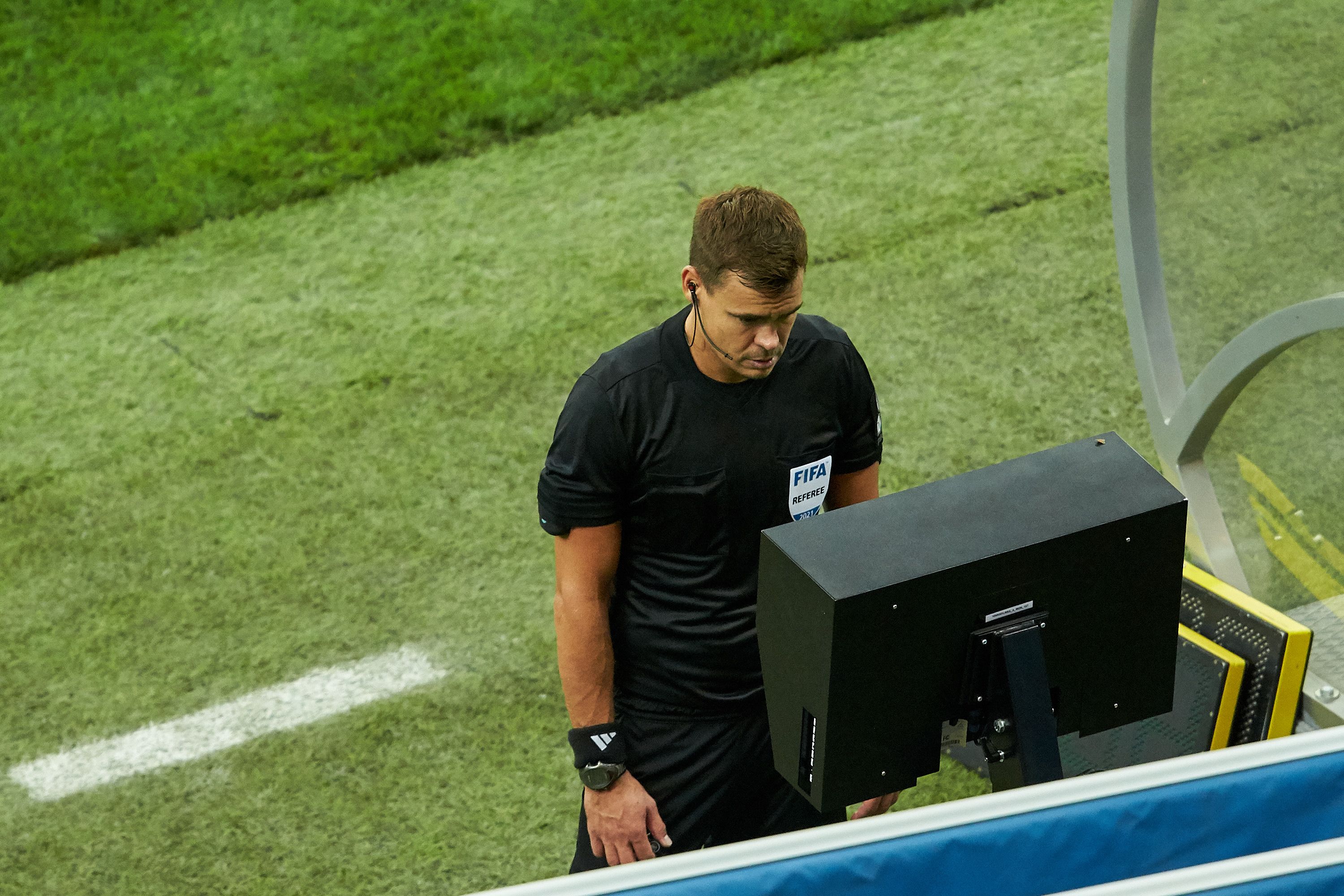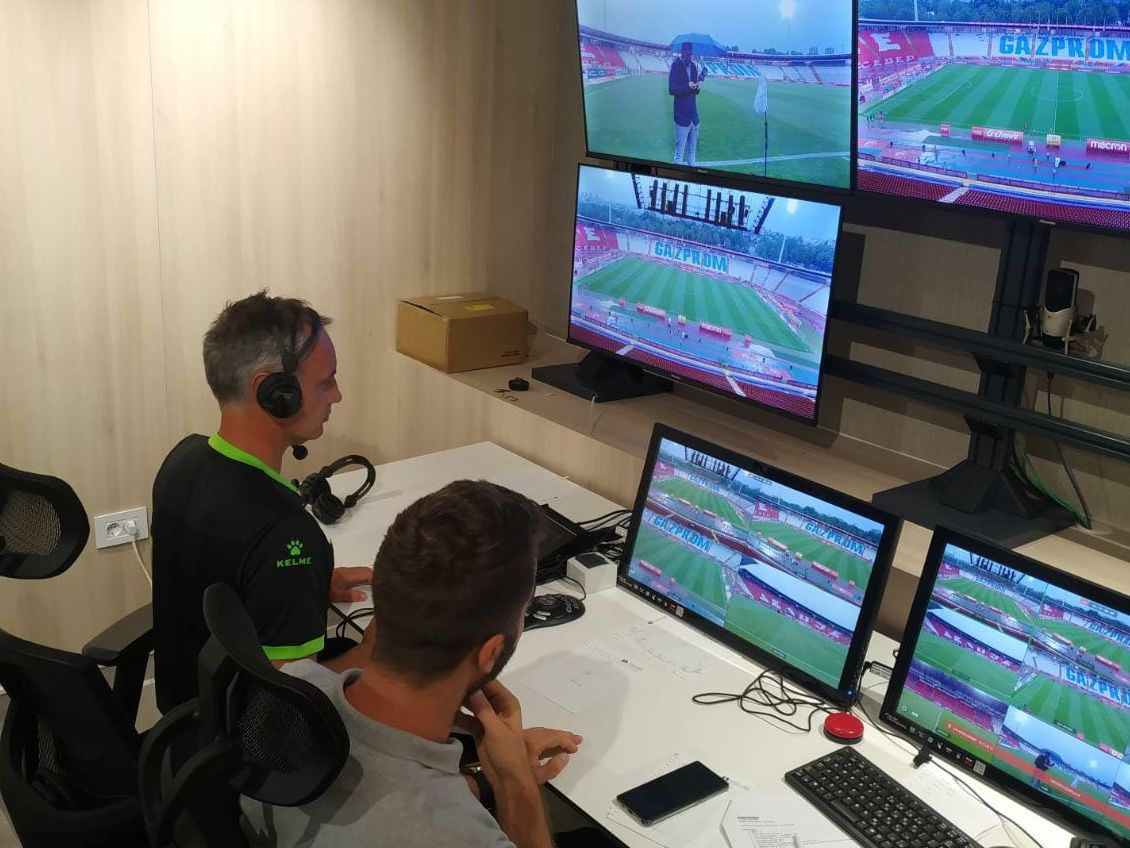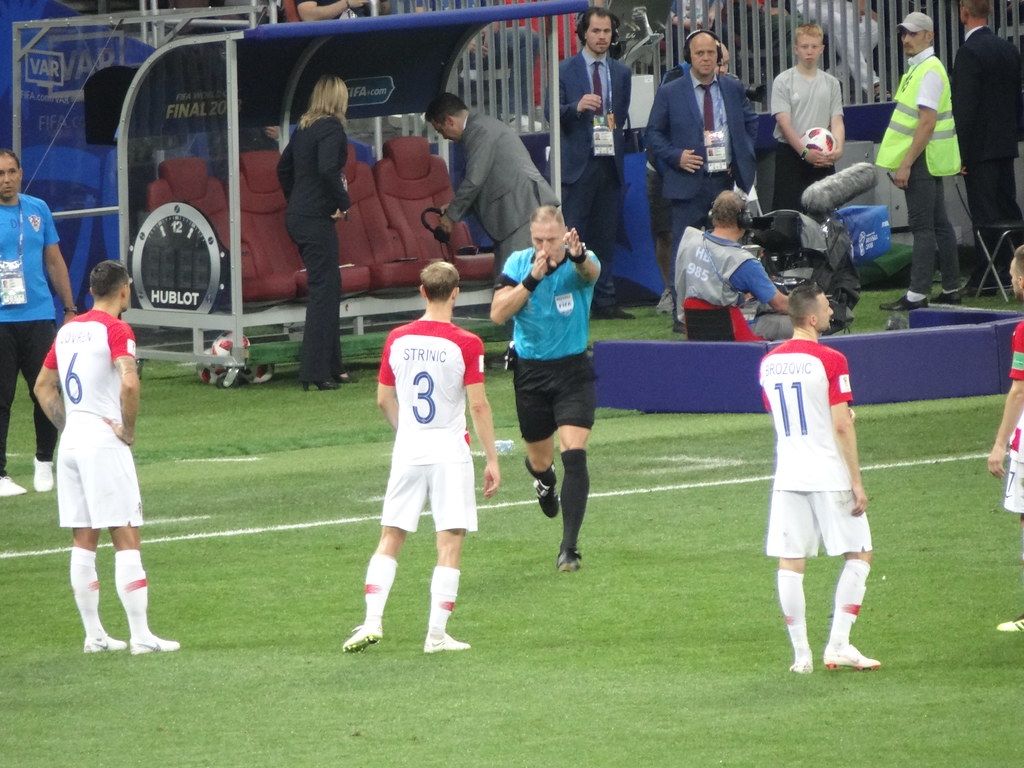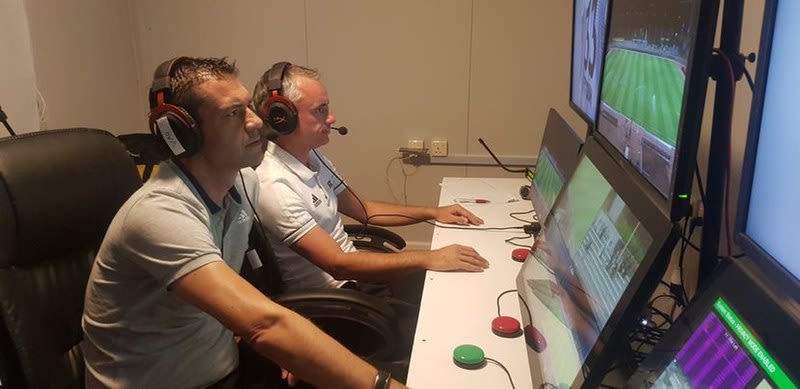Valid, Arbitrary, Rational - an in-depth investigation into VAR - Part 5- Future VAR Technology - The Definitive Verdict
This fifth and final article in the series looks at the future of VAR further, before giving a definitive verdict on the technology.

VAR is now undoubtedly an integral part of the elite modern game, and it will play a huge part in shaping the future of the beautiful game. Read below for our definitive verdict on VAR…
One of the largest changes we can expect to see is an increase in the use of the technology in more leagues worldwide, down to the EFL Sky Bet Championship and other major divisions that don’t have it currently. Once the technology expands to a wider scale, this will have a profound impact on the way the game is played and will make sure that all teams receive a fair and equivalent outcome.
Craig Lynch, former Sunderland AFC player and now manager of NPL Premier Division side Morpeth Town AFC, said ‘I can’t see it being used further down than the championship any time soon due to cost, but I would welcome it in non-league as referees at every level make mistakes, but you can’t argue with facts and VAR confirms decisions. I am a fan of the technology and am in support of anything to make the game fairer as every point is vital and worth a lot of money in the professional game.’

Photo of Craig Lynch from Creative Commons.
Photo of Craig Lynch from Creative Commons.
Next, another trend that is likely and should emerge soon is the development of more extensive technology. We may very much see the introduction of AI (Artificial Intelligence), automated offside detection, and a technology that can automatically detect fouls and other match infringements, reducing the need for manual reviews by officials.
The future of VAR will likely see greater integration with other technologies too. We could see VAR merged with player tracking technologies, perhaps by wearing body cameras or similar tools, enabling officials to make more informed decisions about positional calls, particularly offside. VAR could also closely work in conjunction with goal-line technology to ensure that every goal is precisely recorded and accumulated.
Non-league step six referee, Lee Roberts, suggests three things that would improve VAR for the future of the game. He said, ‘a clear ruling on what decisions VAR will and won’t interfere upon, have referees wear mics so that spectators at the stadium can hear what is happening, and get rid of the lines in offside.’
Tweet credit @leerobertsmedia on Twitter.
Ashley Preece, Aston Villa reporter for Birmingham Live, shares the view of Lee Roberts in that the referees could wear microphones, so there’s more transparency. He said ‘that would work for spectators watching at home as well as in the stadium.’
‘One major thing which would improve VAR for the future is bringing in ex-players into the VAR room at Stockley Park' said Preece.
Tweet credit @PreeceObserver on Twitter.
On Villa’s biggest controversial VAR moment, he said ‘in July 2020, Bruno Fernandes trod on Ezri Konsa’s foot in the box, only for the VAR to award the penalty in United’s favour!’
This decision amongst many other bad verdicts could have been rectified if the referees carefully looked at the incident and determined quickly if it was a clear and obvious error.
Former professional footballer and Sunderland AFC legend, Gary Bennett MBE, believes that VAR over time, will improve. ‘It has its good points’ he said. ‘It is a learning process for everyone.’
Photo of Gary Bennett MBE, credit @SRTRC_England on Twitter.
When Gary was asked if he would’ve welcomed VAR during his playing career, he said ‘I would have accepted it. If I was playing now, I would not like the fact that there is little to no transparency in refereeing decisions for the players and fans. When officials make a mistake, they rarely come out and apologise and if they do, the damage is already done.’
But he recognises that VAR should come good. He said ‘it’s certainly suitable for the future. It just needs to be operated in the right way. The major issue is the mistakes and debates that form from decisions, that need to be rectified for the good of the game.’
As mentioned in previous articles, video technology has been adopted by a range of different sports to assist officials in making decisive and objective choices during games.
In cricket, video technology has been in use since the early 2000s to help umpires make decisions on close calls, largely through the Decision Review System (DRS). Although, cricket fans generally like DRS, one improvement in cricket could be the introduction of ultra-motions cameras which capture images at very high frame rates, which could provide more detailed information for the third umpire to aid their decision.
In tennis, video technology is appreciated, and many believe it improves the overall game. The Hawk-Eye system uses a series of cameras positioned around the court and helps make definitive decisions and it straightforwardly shows whether the ball is in or out. A major area of development that Hawkeye could improve upon is extending its capabilities beyond just line calls. There have been proposals for Hawk-Eye to assist with player positioning and movement, which could potentially help coaches and players to assess and optimise their performances, in addition to providing clearer and more accurate insights to fans and broadcasters.
In rugby, video technology is controversial due to human subjectivity, but not as much as in football. The Television Match Official (TMO) is used to review any incidents or foul play that the on-field officials could potentially miss. One potential area of development for the future of TMOs is to expand their scope, they are primarily used to review tries, but there have been calls to expand the technology to other areas of a game, such as foul play, lineouts and scrums. If technology expanded to these areas of the game, then rugby would be made more fair and just.
Overall, the definitive verdict on VAR is whilst it has helped to improve the accuracy of decisions generally, it has caused major controversy and disrupted the natural flow of the beautiful game. Ultimately, the key to improving VAR is to continue to refine and optimise its use and continue to develop technologies and strategies and when that is done, VAR will be respected and seen as crucial to the world’s sport.




